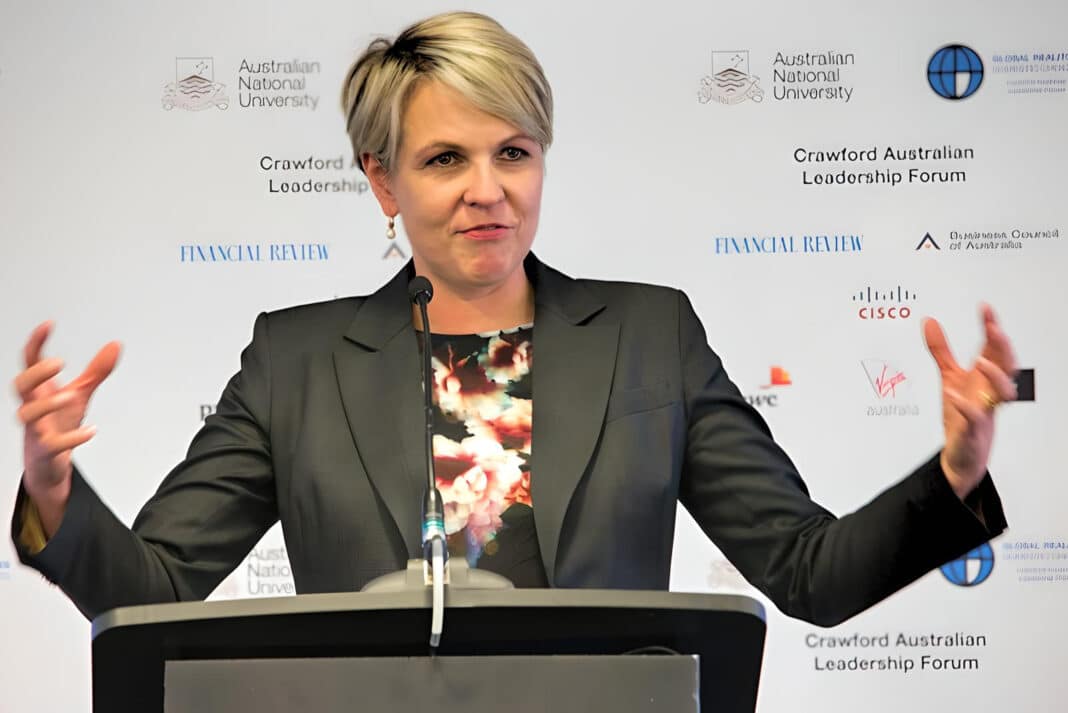Australia’s “Nature Positive Act” – the Albanese government’s signature environmental policy will “continue to allow widespread deforestation”, according to environmental organisations briefed on the draft laws.
They claim the new act risks being “undermined by political interference from the mining, logging, and agricultural sectors”.
The new laws, scheduled to go before parliament later this year, represent the most significant change to environmental laws for decades, with Environment and Water Minister Tanya Plibersek confirming overnight that the new rules will apply to the country’s Regional Forest Agreements.
On 10 News overnight, Minister Plibersek said that more than 90% of Australia’s timber supply comes from plantations. “And whilst the rules will be applied to the native forest industry:”, “we won’t ban native logging altogether, (but) we’re talking about making sure that we are careful and thoughtful about the timber industry that we have in Australia.”
In recent months, officials representing the minister have been sharing sections of the draft laws after consulting with conservation, businesses (including the Australian Forest Products Association) and other groups.
Speaking exclusively to the Guardian, Environmental Justice Australia, the Wilderness Society, and Environment Centre Northern Territory are unhappy that the new laws do not go far enough to end large-scale deforestation for agriculture and mining developments or explicitly reference the need to halt the decline in threatened species.
In a statement ahead of the next consultation meeting, scheduled for later today, they are calling for introducing a “land-clearing trigger” so developments that planned to bulldoze significant pieces of land had to be assessed by federal authorities and not left to the states and territories.
They have nonetheless welcomed the federal government’s commitment to establishing Environment Protection Australia – a national EPA that will operate in a similar capacity to the EPA in NSW – but said they were concerned after seeing the drafts that the environment minister of the day had the discretion to “call in” decisions that should be left to independent experts at the EPA.
“One of our primary concerns is the potential for important decisions to be influenced by political agendas rather than scientific evidence,” according to Environmental Justice Australia’s lawyer, Danya Jacobs.
Jacobs said the draft laws needed to be more active on land clearing, adding, “It’s just not good enough. We’re in an extinction crisis, and Australia is a deforestation hotspot.”
A lack of federal oversight has already resulted in the Northern Territory’s savannah “being bulldozed for cotton farming, other agriculture and mining,” according to Environmental Centre for NT executive director Kristy Howey.
“The Albanese government has talked a big game when it comes to fixing the nature crisis, but as they currently stand, the new laws won’t fix the rampant land clearing across Australia,” Ms Howey said.
The three organisations’ concerns are consistent with some of those raised by nine environment groups in a letter to Minister Plibersek in September.
The new laws will replace the 25-year-old Environment Protection and Biodiversity Conservation (EPBC) Act, with Minister Plibersek promising to make sweeping reforms after taking office in 2022.
Environment department officials told a public webinar in November that the new laws would be “outcomes-focused” and guided by new environmental standards.
As Tasmania’s early election approaches, Dr Brown said of the latest logging in the Styx Valley of the Giants, ‘This is official vandalism and disregard for global law. It is reckless of the Liberal government to disregard Tasmania’s natural beauty and international reputation.’
Bob Brown, a long time campaigner against native forest harvesting, said this logging breaches the World Heritage Convention because the forest is itself of such value and because logging increases the threat of bushfire to the adjacent Tasmanian Wilderness World Heritage Area.
He says the forest’s destruction is to make money for an out-of-state logging corporation, Porta, which owns a mill in Bridgewater and a processing plant in Victoria.
‘The Styx Valley of the Giants should be Tasmania’s next iconic tourist attraction, but instead, the government is subsidising its destruction,’ Dr Brown said.






